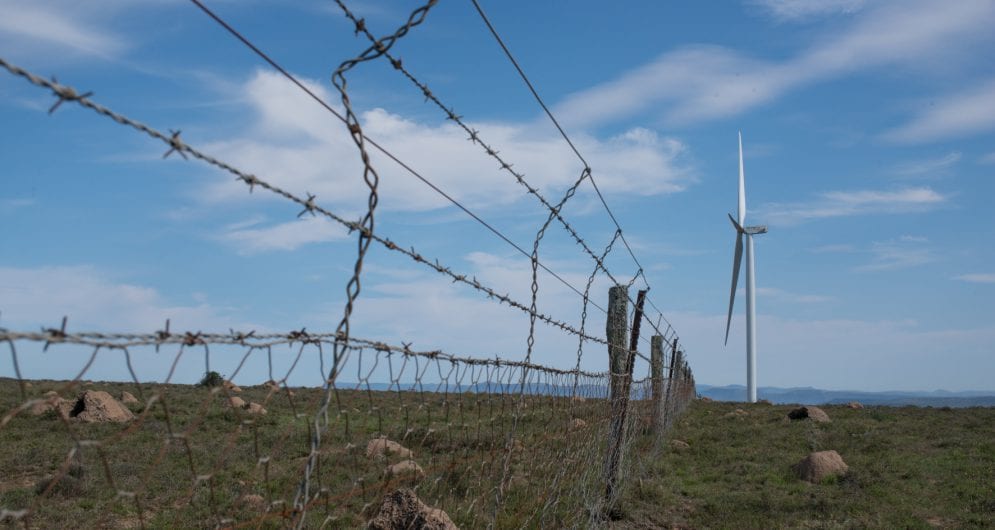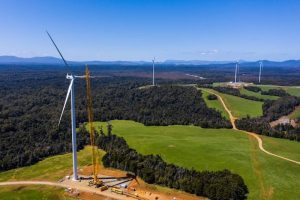Researchers from the University of Oxford have published a new study which predicts that total electricity generation across the continent of Africa will double by 2030 and that fossil fuels will continue to dominate the energy mix.
This, in turn, will pose a significant potential risk to global climate change commitments, and the planet’s long-term efforts at halting irreversible climate change.
The new study, published in the journal Nature, used a new machine-learning technique to analyse Africa’s pipeline of over 2,500 planned power plants and their chances of being successfully commissioned. According to the study’s authors, “scenarios, relying on wide-ranging assumptions about the future, do not always adequately reflect the lock-in risks caused by planned power-generation projects and the uncertainty around their chances of realization.”
This underlying premise led to the building of a machine-learning model that was able to accurately predict power generation project failure and success by utilising “the largest dataset on historic and planned power plants available for Africa, combined with country-level characteristics.”
Under the assumption that total electricity generation across Africa will double by 2030, and based on the results of the pipeline analysis, the researchers predicted that the share of non-hydropower renewables in African electricity generation is expected to remain below 10% in 2030 – although, this will vary by region.
Conversely, the study predicts that fossil fuels will account for two-thirds of all generated electricity across Africa in 2030. The research concludes that another 18% of generation to come from hydropower projects – however, these projects have their own issues and vulnerabilities, such as the increasing number of droughts caused by climate change.
“Africa’s electricity demand is set to increase significantly as the continent strives to industrialise and improve the wellbeing of its people, which offers an opportunity to power this economic development through renewables,” said Galina Alova, study lead author and researcher at the Oxford Smith School of Enterprise and the Environment.
“There is a prominent narrative in the energy planning community that the continent will be able to take advantage of its vast renewable energy resources and rapidly decreasing clean technology prices to leapfrog to renewables by 2030 – but our analysis shows that overall it is not currently positioned to do so.”
There are significant regional variations, however, in the pace of the transition towards renewables. Southern Africa is leading the way – with South Africa alone forecast to account for almost 40% of Africa’s total predicted new solar capacity by 2030.
“Namibia is committed to generate 70% of its electricity needs from renewable sources, including all the major alternative sources such as hydropower, wind and solar generation, by 2030, as specified in the National Energy Policy and in Intended Nationally Determined Contributions under Paris Climate Change Accord,” said Calle Schlettwein, Namibia Minister of Water.
“We welcome this study and believe that it will support the refinement of strategies for increasing generation capacity from renewable sources in Africa and facilitate both successful and more effective public and private sector investments in the renewable energy sector.”
“The more data-driven and advanced analytics-based research is available for understanding the risks associated with power generation projects, the better. Some of the risks that could be useful to explore in the future are the uncertainties in hydrological conditions and wind regimes linked to climate change, and economic downturns such as caused by the COVID-19 pandemic.”
The Oxford report’s “findings point to high carbon lock-in risks for Africa, unless a rapid decarbonization shock occurs leading to large-scale cancellation of the fossil fuel plants currently in the pipeline.”
The study also identified ways in which planned African renewable energy projects could be designed to improve their chances of success, such as fostering projects of smaller size and increasing the availability of development finance.
“The development community and African decision makers need to act quickly if the continent wants to avoid being locked into a carbon-intense energy future,” said Philipp Trotter, study author and researcher at the Smith School.
“Immediate re-directions of development finance from fossil fuels to renewables are an important lever to increase experience with solar and wind energy projects across the continent in the short term, creating critical learning curve effects.”










